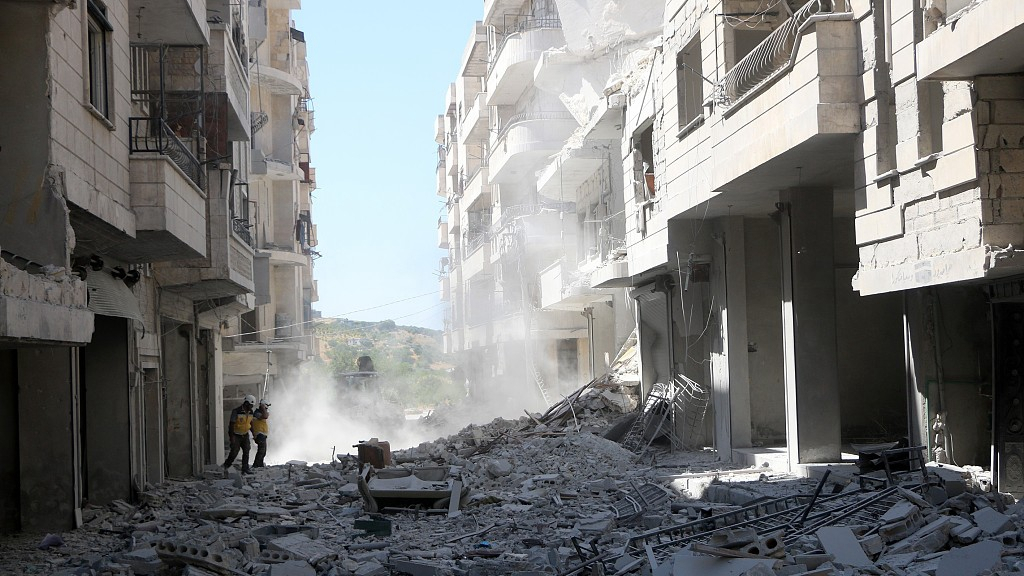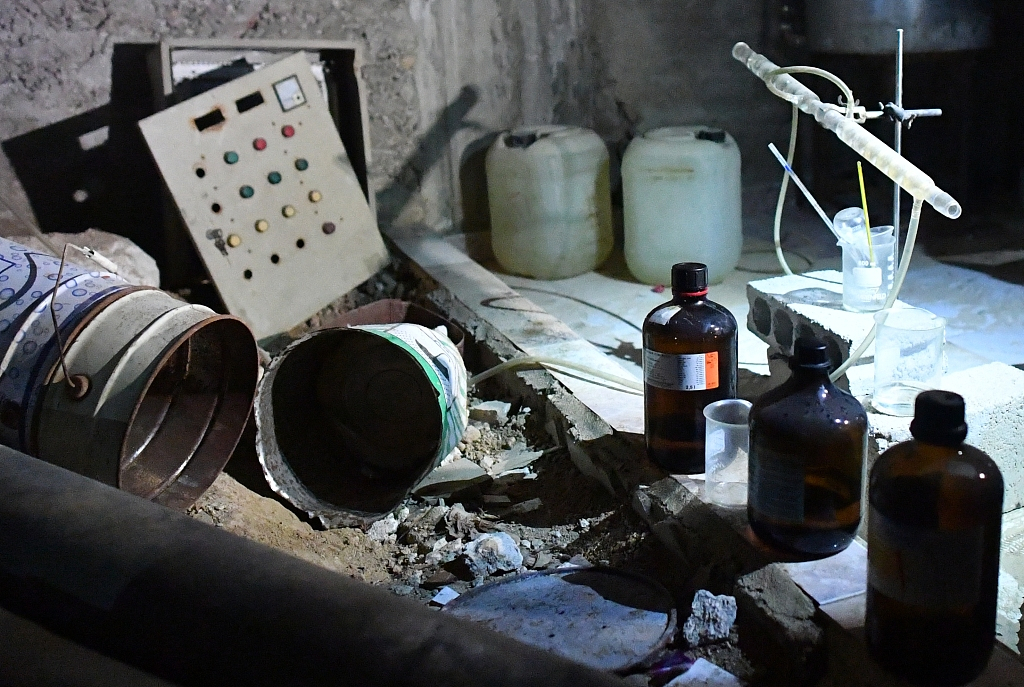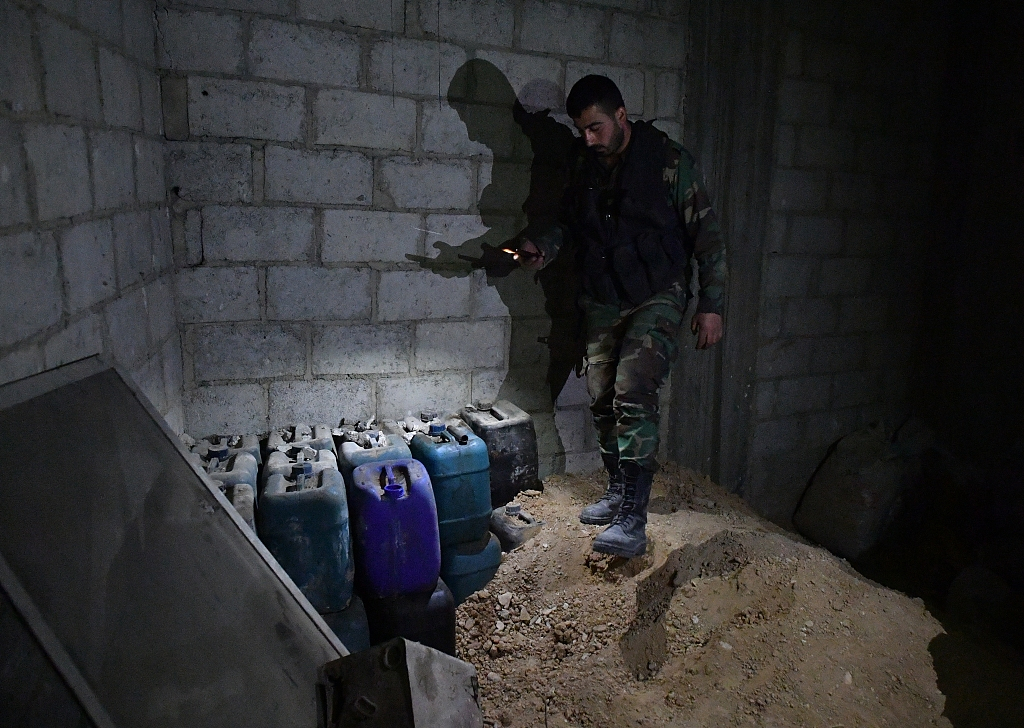
The Organisation for the Prohibition of Chemical Weapons (OPCW) established a new team to ascertain blame for the use of banned munitions in Syria. The investigation will be focused on the nine alleged attacks during the country's civil war, including in the town of Douma.
Created in 1997, the OPCW is a technical body to enforce a global non-proliferation treaty. Until now it had been authorized only to say whether chemical attacks occurred, not who perpetrated them.
Last June, the Investigation and Identification Team (IIT) was established by the OPCW's member states during a special session, a move that has brought deeper political division to the U.N. -backed agency. Now it has identified the locations of its first investigations to be conducted in the coming three years.

A debris of a building is seen after an air strike in Idlib, Syria, July 10, 2019. /VCG Photo
According to Reuters, a document circulated to OPCW member states, said the team "has identified a non-exhaustive provisional list of incidents on which it intends to focus its investigative work" between 2014 and 2018.
The British-led proposal creating the 10-member team was supported by the U.S. and European Union but faced opposition from Russia, Iran, Syria, and their allies.
Syria has refused to issue visas to the team's members or to provide it with documentation, revealed OPCW chief Fernando Arias in comments to member states published last month.
There were reports of dozens of fatalities on April 7, 2018, after an attack on Douma, at the time held by rebels but besieged by pro-government forces.

Russian soldiers found a chemical laboratory for the production of toxic agents and explosives in the basement of a residential building in the town of Douma, Syria, April 18, 2018. /VCG Photo
U.S. President Donald Trump blamed the attack on Syrian forces and launched missile strikes on Syrian government targets a week later with the backing of France and Britain.
The government of Syrian President Bashar al-Assad and Russia denies using chemical weapons and accuse insurgents of staging the attack to implicate Syrian forces.
Syria joined the Chemical Weapons Convention in 2013, agreeing to open itself up to OPCW inspections and averting threatened military action by then U.S. President Barack Obama.

Russian soldiers found a chemical laboratory for the production of toxic agents and explosives in the basement of a residential building in the town of Douma, Syria, April 18, 2018. /VCG Photo
As part of a deal brokered with Russia, Damascus promised to completely destroy its chemical weapons capabilities, but attacks with banned munitions have been widespread and systematic during the civil war, which began in 2011.
The new team at the OPCW is focusing on sites of chemical attacks where culprits have not yet been identified by the JIM.
In addition to Douma, the team will investigate: two attacks in Al-Tamanah, in the northwestern region of Idlib, in 2014; one in Kafr-Zita, northern Hama, also in 2014; one in Marea, northern Aleppo, in 2015; three attacks in Ltamenah, also in Hama, in 2017; and one in Saraqib, Idlib, in 2018.
The OPCW concluded in a March 1 report that a chemical weapons attack occurred in Douma, most likely with chlorine. It did not assign blame.
(With input from Reuters)

Copyright © 2018 CGTN. Beijing ICP prepared NO.16065310-3
Copyright © 2018 CGTN. Beijing ICP prepared NO.16065310-3